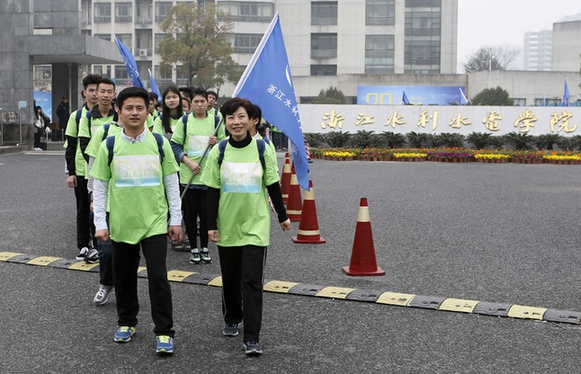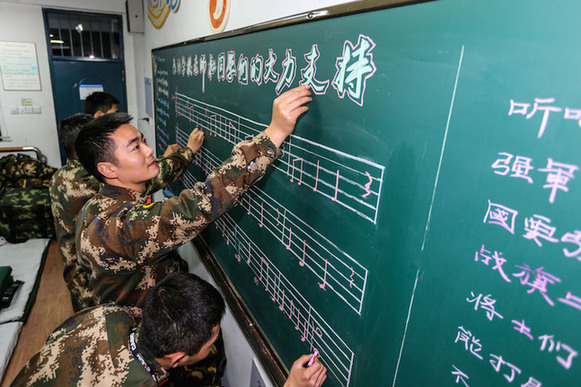| 古怪的法轮功版《安提戈涅》 |
| 2011年09月26日 |
|
法轮功版的《安提戈涅》,剧本由Cherylene Lee改编自索福克勒斯的悲剧《安提戈涅》,导演David Furumoto.2400多年前,索福克勒斯的《安提戈涅》被公认为戏剧史上最伟大的作品之一,塑造了为了维护自然法不向世俗低头的伟大女英雄形象。但是,法轮功版的《安提戈涅》没有体现原版主人公那种很少有理屈的时候。 导演是不是想让女主角显得不值得人同情,这一点我不甚清楚,不过在这个新版本中,改编者将那个古老的斗争转化成现代中国对极具争议的法轮功组织的迫害。只能说,舞蹈比情节、内容要好一些。 LEE不是第一个改编《安提戈涅》来反映当下政治问题的导演。此前还有JeanAnouilh导演的著名的二战版《安提戈涅》,Bertolt Brecht导演的反战版,此剧在越南战争中甚有影响力,Athol Fugard导演的《逃出克隆岛》,是反对种族隔离版的《安提戈涅》。 该剧讲述了一个孤独的女人为了修炼法轮功公然反抗当局,Lee这种利用法轮功的处境改编的故事似乎很符合索福克勒斯的《安提戈涅》。但是从另一个层面来说,这个构思明显是有问题的。公元前442年的索福克勒斯的剧本展现的是王国内战的悲剧,就算是俄狄浦斯一家,也找不到与现在中国情形相似的地方。 索福克勒斯的王国内战悲剧,Lee在中国文革中找到了共鸣,然而她以某些方式夸大当下事件,却削弱了她的“安提戈涅”。她的改编剧中没有“安提戈涅”凭吊、埋葬哥哥尸体的场景,甚至也没有明确统治者“克瑞翁”有没有杀死“安提戈涅”的哥哥。“安提戈涅”对此唯一的证据居然是:她宣称她用她的“第三只眼睛”(注:开天目)看到了一切真相。 故事很有问题,部分原因是Lee用法轮功作为“安提戈涅”严格遵从的信仰。但法轮功是宗教还是邪教,或是盛行的精神运动系统精心策划的大骗局,或是以上皆是,理智和博学多闻的观众对此看法不一,程度不同。Lee没有表明立场,但是她似乎想要我们去同情法轮功中的“反抗克瑞翁的安提戈涅”。 安提戈涅自大傲慢的特征让她成为一个意味复杂的戏剧英雄。但这个改编剧将安提戈涅这个特征极端化了。克瑞翁对她哥哥之死的解释比她自己的解释现实多了,因为她居然为自己的“别有用心”创造了“天目”。 法轮功剧中的“安提戈涅”(修炼者)出于对“克瑞翁”(中国政府)的怨恨决心殉难,这是他们到达“极乐世界”的捷径,根据则是他们奇怪的理论——痛苦。很明显,在法轮功理论中,无论出于什么原因的痛苦,都可以“净化”她的家族传说中的“坏业”。Lee许是故意以这种方式引导她产生邪教般的狂热——导致三年前五名法轮功成员在天安门广场自焚。但是,即使是迷人的Akimoto(饰演主角的演员)也不能让这个遥远版的“安提戈涅”得到观众的同情。 在这出戏中,Cheng表演很生动,H. Michael Ching很滑稽,最后的死亡场景很棒。但总的来说,法轮功版的《安提戈涅》古怪且死气沉沉。 原文: An odd take on‘Antigone’ April 17, 2004|By Robert Hurwitt , Chronicle Theater Critic Antigone Falun Gong : Drama. Adapted by Cherylene Lee from the tragedyby Sophocles. Directed by David Furumoto. (Through May 16. Aurora Theatre,2081 Addison St., Berkeley.80 minutes. Tickets $34-$36. Call (510 )843-4822 or visit www.auroratheatre.org )。 For just a few decades lessthan 2,500 years , Sophocles' "Antigone" has been regarded as a great—— if not the great —— tragedy pitting the conscience of the individualagainst the laws of the state. Seldom , however, has the individualmade a weaker case for her cause than in "Antigone Falun Gong ," thenew adaptation by Cherylene Lee that opened Thursday at the Aurora Theatre. What's less clear is whether Lee intended to make the title characterquite so unsympathetic. Her new version transfers the age-old conflictto contemporary China and its persecution of the controversial Falun Gongmovement. Commissioned by the Aurora, and developed with the help ofthe Magic Theatre and Z Space Studio, the show is attractively stagedin director David Furumoto's world premiere production. But its finestmoments are expressed in dance rather than words. Lee is far from the first to adapt "Antigone" to reflect upon currentpolitical concerns. Jean Anouilh's popular World War II version tried(too hard) to avoid riling the Nazi authorities while making Antigone'smoral stand heroic("less Sophocles than sophomore," in George Jean Nathan'smemorable phrase)。 Bertolt Brecht's intense anti-war rewrite was aninfluential piece in the Vietnam War era(and looks even more prescienttoday ) in Judith Malina's Living Theatre version. Athol Fugard usedit to anti-apartheid purpose in "The Island." On one level, Lee's use of the Falun Gong situation seems apt forSophocles' tragedy about a lone woman defying an autocratic state to exerciseher religious principles. On another level, the idea is obviously problematic.Sophocles' 442 B.C. drama is anchored in the fate of civil war casualties—— and, to a large degree, the clan of Oedipus—— neither of whichsuggests immediate Chinese analogies. The story so far: Oedipus having quit the throne (and gouged outhis eyes), his two sons (and , er , half-brothers) kill each otherin a war over who gets to rule. Their successor , Creon, decrees thatone will get a hero's burial but the other is a traitor , to be leftout to rot. Their sister(and aunt?) Antigone defies Creon—— in obedienceto her ancient faith, Greek customs and family honor. When Creon failsto argue her into submission, he has her sealed up in a tomb to die.But the people grow restive , Creon's son Haemon (Antigone's fiance )kills himself and Creon is left to bewail his fate. Lee finds her echo of Sophocles' civil war in China's Cultural Revolution,but she stretches her current events analogies in ways that undercut herAntigone—— called A (all the principal characters take only the firstinitials of Sophocles' equivalents) and played with concentrated focusby Bonnie Akimoto. There's no brother's corpse for A to grieve, honorand attempt to bury. It's never even clear that Creon (or C), the governor,had him killed, as she alleges. Her only evidence is that she claimsto have seen this with her "third eye." third-eye visions are beautifully and energetically choreographedby Peter Kwong in an engrossing blend of Peking Opera , martial artsand Falun Gong exercises to a rich, evocative score by Mark Izu. Themurder she alleges is a stunning long-distance wushu pas de deux betweenFurumoto's solid, imposing C and a breathtakingly fluid, athletic RaulJocson. Lee uses the dance visions in place of Sophocles' choral passages.Snapping flags, great swaths of undulating red fabric and Fumiko Bielefeldt'sstriking mix of modern and ancient Chinese opera costumes enhance thevisual impact on Ching-Yi Wei's attractive pale yellow set ornamentedwith antiqued Chinese character stamps and scroll script. Jocson, FrancesCachapero (as A's dance double ) and Keiko Shimosato(who doubles asA's fearful sister I, or Ismene) perform with magnetic grace. The story , though , is more problematic, partly because of Lee'suse of Falun Gong as the faith to which A rigidly adheres. Reasonableand informed observers differ whether or to what degree Falun Gong isa religion, a cult , a widely practiced system of spiritual exercises,an elaborate con or all of the above. Lee doesn't exactly take sides,but she seems to want us to sympathize with A's defiance of C's attemptsto repress the movement. Antigone's arrogant streak has always been part of what made her sucha complex dramatic hero. But A carries that trait to extremes. C's accountof her brother's death makes so much more sense than hers that she appearsto have invented her vision for ulterior purposes. Her rejection of herlover H's pleas for life—— played with poignant sincerity by MichaelCheng —— is framed in the most heartless new-age cant ("I'm not responsiblefor what you feel")。 A is an Antigone bent on martyrdom out of spite for C , as a shortcutto nirvana("Freedom is not of this dimension") and for the odd notionthat suffering—— apparently for whatever reason —— will "purify" herfamily's legendarily bad karma. Lee may have drawn her this way on purpose,as a way to explore the cultlike fervor that led to the self-immolationof five Falun Gong members three years ago in Tiananmen Square. But eventhe engaging Akimoto can't make this A remotely sympathetic. Cheng is touching as H. Michael Ching is pleasantly troubled and drollas A's unwilling guard. The final death scene is staged with a vivid theatricalflourish. But Lee's "Antigone" is oddly inert. 截图:
Robert Hurwitt |
| 来源: 作者: 编辑:陈俊男 |












